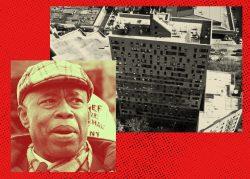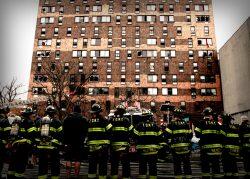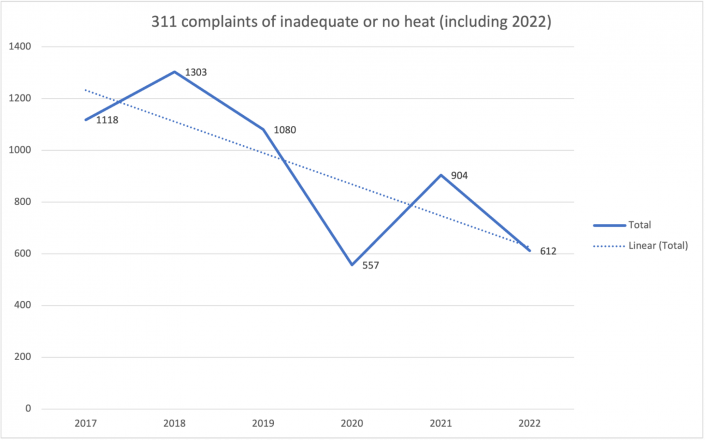The City Council is turning up the heat on landlords — literally.
Council member Crystal Hudson introduced a bill Thursday to make them raise the minimum temperature in apartment buildings, reasoning that it would reduce the use of dangerous space heaters.
City law requires that from October through May, landlords heat multifamily buildings to at least 68 degrees during the day and 62 at night. The bill would bump those temperatures to 70 and 66 degrees, respectively.
Hudson’s bill is backed by several key Council members, including Pierina Sanchez, who chairs the Council’s Committee on Housing and Buildings, and Gale Brewer, the former Manhattan borough president who led the charge on a similar bill in 2017, the last time the city raised minimum temperatures.
In a press release announcing the bill, the Council members invoked the deadly fire caused by a space heater at a Bronx building in January. Residents had complained that unheated apartments forced them to run electric heaters around the clock.
A faulty heating system, rather than low thermostat settings, led to the fatal blaze. Hudson’s legislation would not address that problem, although she pledged in a press release announcing the bill to “work closely with the Department of Housing Preservation and Development to ensure it holds predatory landlords accountable.”
“This bill will ensure residents whose landlords already turn on the heat can stay warm during the winter by providing suitable minimum temperatures,” her statement said.
Read more


The 145-word bill does not specify how it would improve enforcement, which is largely complaint-driven.
Since 2017, the city has received 5,574 complaints of inadequate or no heat, according to public data. An analysis by The Real Deal shows complaints have trended downward in recent years, falling from 1,303 in 2018 to 904 last year.

Owner groups said the bill would increase energy use, costing landlords and tenants money, and would fly in the face of the city law capping greenhouse-gas emissions at large buildings.
“There’s no way that this is going to be efficient in terms of usage of buildings,” said Frank Ricci, executive vice president of the Rent Stabilization Association. “This is totally contrary to the intent of Local Law 97.”
Ricci also cautioned that, given high energy prices, the bill could boost rents at rent-stabilized buildings. “It would also be an astronomical cost, which, if the Rent Guidelines Board is doing its job, should relate to a rent increase for tenants too,” he said. The board is supposed to take heating costs into consideration when voting on rent increases.
After the Bronx fire, Sen. Kirsten Gillibrand and Rep. Ritchie Torres, both from New York, introduced a bill to require heat sensors in all residential buildings that receive federal funding.
Legislation was also proposed in Washington and Albany to ban the sale of space heaters that do not turn off automatically when they tip over.
